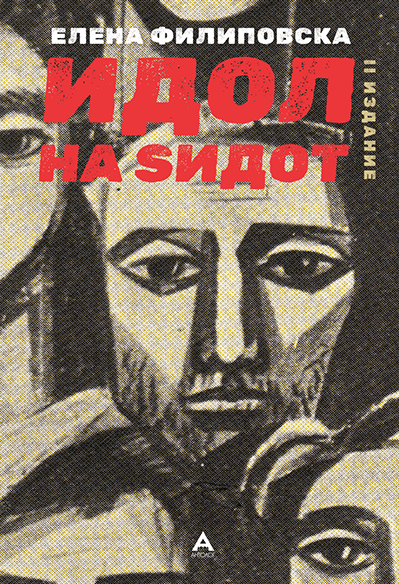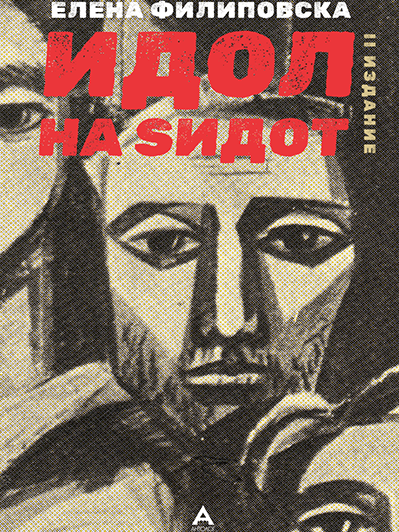
First published:
2020
ISBN: 978-608-243-565-7
Pages: 231
Format: 13×20
Cover: Paperback
Language: Macedonian
Translations:
Genre: Fiction, novel
Synopsis
The story of the nostalgic dystopia takes place in 2020, in Skopje, which is in the Socialist Republic of Macedonia, which is still a part of the Socialist Federal Republic of Yugoslavia.
The main character, Zoran, is a typical Macedonian, taciturn and humble. He lives with his little daughter in the area of Karposh, in a Skopje which is stuck in time, nailed to an ironclad, but rusty system.
The third Marshal comes into power and strange things start to happen. Miners disappear along with female teachers, handymen and, eventually, children. When Zoran’s daughter disappears, he takes us on an exciting tour of the dystopian society which reflects the brightest and darkest aspects of our culture and everyday life.
- An excerpt of the novel in Macedonian is available at the Radio MOF website, on the #Raskazi mi column. (https://www.radiomof.mk/raskazhimi-izvadok-od-romanot-idol-na-dzidot-od-elena-filipovska/)
Reviews
With her first novel, Idol on the Wall (2020), Elena Filipovska has brought a whiff of fresh air in Macedonian literature with a laser-sharp, meticulous, virtually textbook dystopian display of just one of the multitude of virtual realities we could have woken up into. I am saying ‘virtually textbook’ because this novel contains almost all the elements that we recognize as dystopian, be it in the established, classical works such as 1984 (published in 1949) and The Brave New World, 1932, or in the more recent novels such as The Handmaid’s Tale, 1985 or The Children of Men, 1992. Thus, the dehumanized chronotope of a futuristic, post-socialist Skopje on display here is a gray, riven and deconstructed illusion of the perfect society. In such a system, the oppressive societal control is seemingly wielded by a distant, mystified center of power (Belgrade), but, in real life, the city (and the Republic) is held in the grip of the local (domestic) Grand Patriots, ensconced on mount Vodno, in their luxury, parallel universe. From the safe distance of Belgrade and the heights of mount Vodno, the common folk are being reigned in by effusive propaganda (at the expense of chronic lack of essentials, such as food and clothing), limited access to information and relentless supervision and control, that overshadow virtually all aspects of their lives. The ‘classic’ dystopian subject, with a generic Macedonian male name from the eighties (Zoran), fits this ‘classic’ dystopian world. As is usually the case with dystopian subjects, he too eventually finds himself in a situation in which he begins to cast doubt on the system he lives in and to be at odds with his being trapped and powerless in it.
(“Reper” no. 155-156, 2023, Elizabeta Bakovska)
...In this dichotomy of the government and the workers, a glimmer of hope lurks in the words of the narrator – the descriptions of the sunrise over Skopje, in a ‘gloomy’ social- communist-realist city built on reinforced concrete, steel structures and slick public transport. Zoran talks about the traffic jams on bicycle, the kindergartens in every area of the city, the soup kitchens, but also about the communal launderettes, the bike maintenance hubs, the empty spaces devoid of advertisements and many things that we would find hard to imagine our environment without today.
(“Glasnik”, February 2021).
The book has an unusual, striking concept and it is well conceived and written. It is not easy to create a world that doesn’t exist, as there are no temporal and spatial references in it that are known to us, where one would simply position the story, but the entire architecture of that world needs to be constructed. In the case of this novel, it is constructed skillfully – the world is convincing. It is obvious that research has been made into the era of socialism and the Skopje dialect, as well, and the illustrations contribute to the allure of this novel.
(“Kon-tekstot” – Macedonian literature in the first decades of the twenty-first century, Kalina Malevska, 2023)


